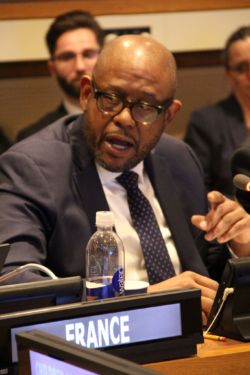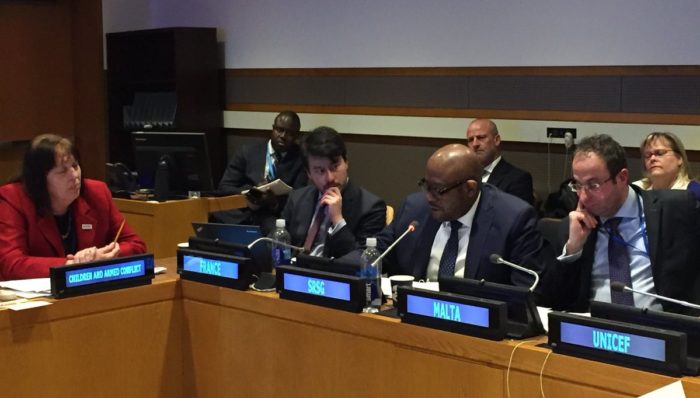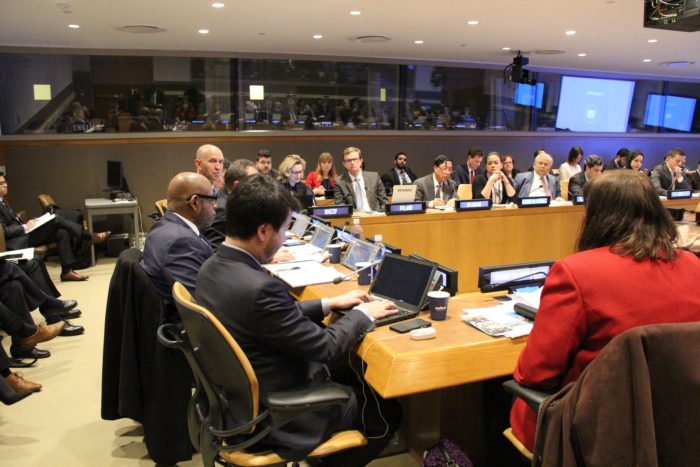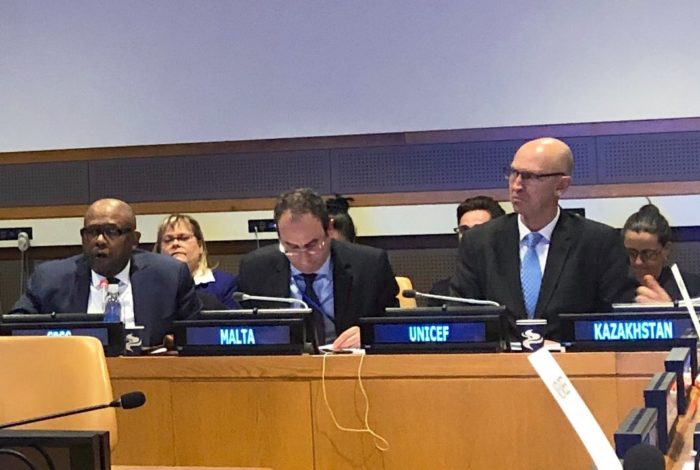
February 26, 2019 – Yesterday, Forest Whitaker – the Founder/CEO of the Whitaker Peace & Development Initiative (WPDI) – was at the United Nations in New York City to support child soldiers and youths affected by conflict. Mr. Whitaker, who is also the UNESCO Special Envoy for Peace and Reconciliation, spoke before representatives of various governments, non-governmental organizations, and UN agencies gathered at the first formal meeting of the Friends of Reintegration Group. There, he spoke to his experiences with young people affected by conflict and the need for the international community to devote more resources and attention to their plight.

The Friends of Reintegration Group is a component of the Global Coalition for Reintegration of Former Child Soldiers and was launched in September 2018 at the initiative of the Special Representative of the Secretary-General, Ms. Virginia Gamba. It aims to address a critical issue of global concern: the tens of thousands of children exposed to conflict and its aftermath, who often face immense challenges concerning reintegration into society. UNICEF reports that, in the past five years, over 55,000 boys and girls were released from armed forces and armed groups globally, however only 70 percent (42,000) of these children were able to benefit from reintegration programs. The group formed by Ms. Gamba seeks to rally support for increased investments and attention for child reintegration.

Underlying Mr. Whitaker’s address was the idea that, in order to be sustainable, child reintegration should first and foremost be about youth empowerment. This is precisely the core notion behind WPDI’s work: that young people represent the future of their communities and should be presented with opportunities to engineer transformative change. In this light, the ability of former child soldiers to regain their place in a peaceful society can be the contributing factor in stopping the cycle of violence, building peace, and contributing to sustainable development.

To that extent, since its founding, WPDI had directly impacted 300,000 people and indirectly impacted an additional 1,000,000. Mr. Whitaker spoke to this impact in his remarks to the group, during which he evoked individual stories of former child soldiers participating in WPDI programs, as well as examples illustrating the positive impact youths can have in vulnerable communities, notably through teaching conflict resolution in schools and in developing small businesses. “The success of our programs,” he said, “has taught me the value of long-term engagement. The issue of child reintegration should not be seen as just a humanitarian gesture to help vulnerable groups of children move on. It must be seen as a sustainable and strategic investment in the reconstruction of societies.”
Agreeing with the observation by the committee that more resources were needed to achieve truly sustainable child reintegration, he endorsed the message by the SRSG that governments should increase their efforts by sharing their experience, championing the issue and giving money or political support.
Forest Whitaker said in closing: “the most important aspect for successful child reintegration is probably the need for them to feel a sense of belonging to a community where they can develop socially, economically, and culturally; in other words, a place where they can become the people they wish to be.”